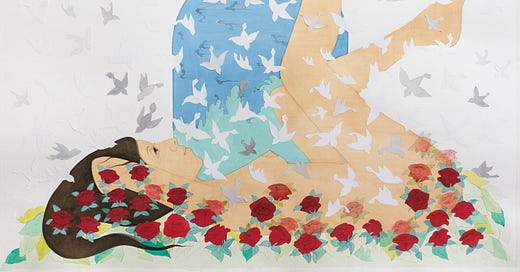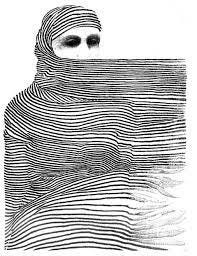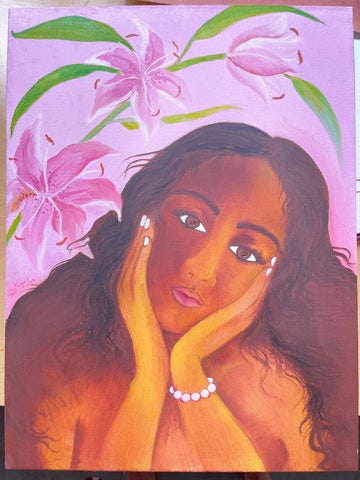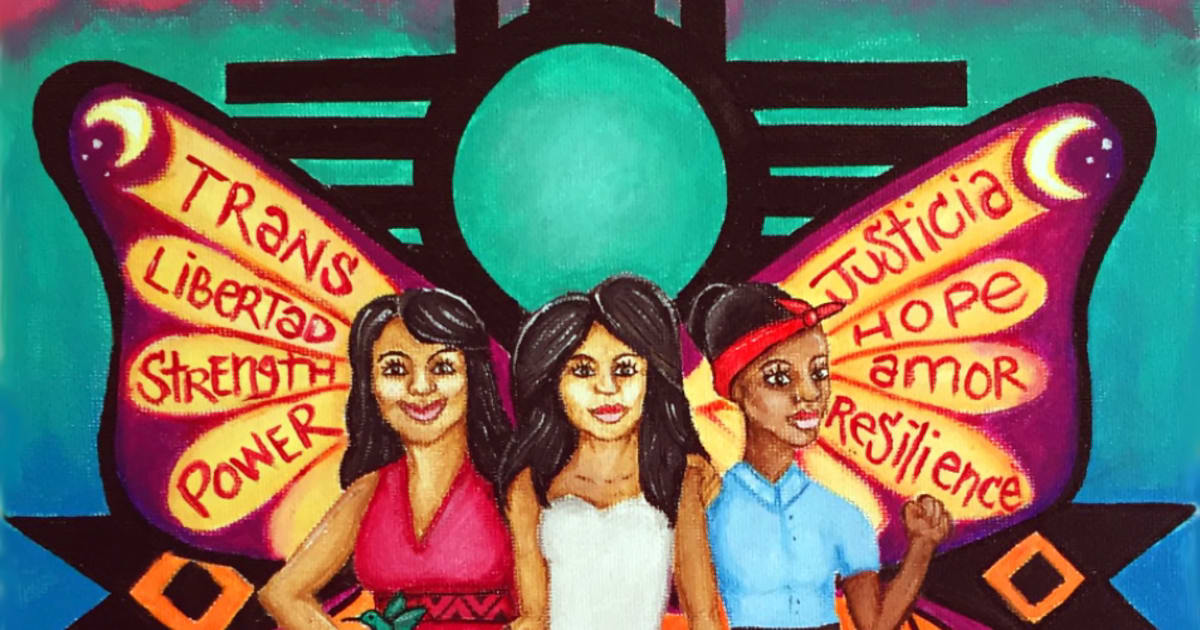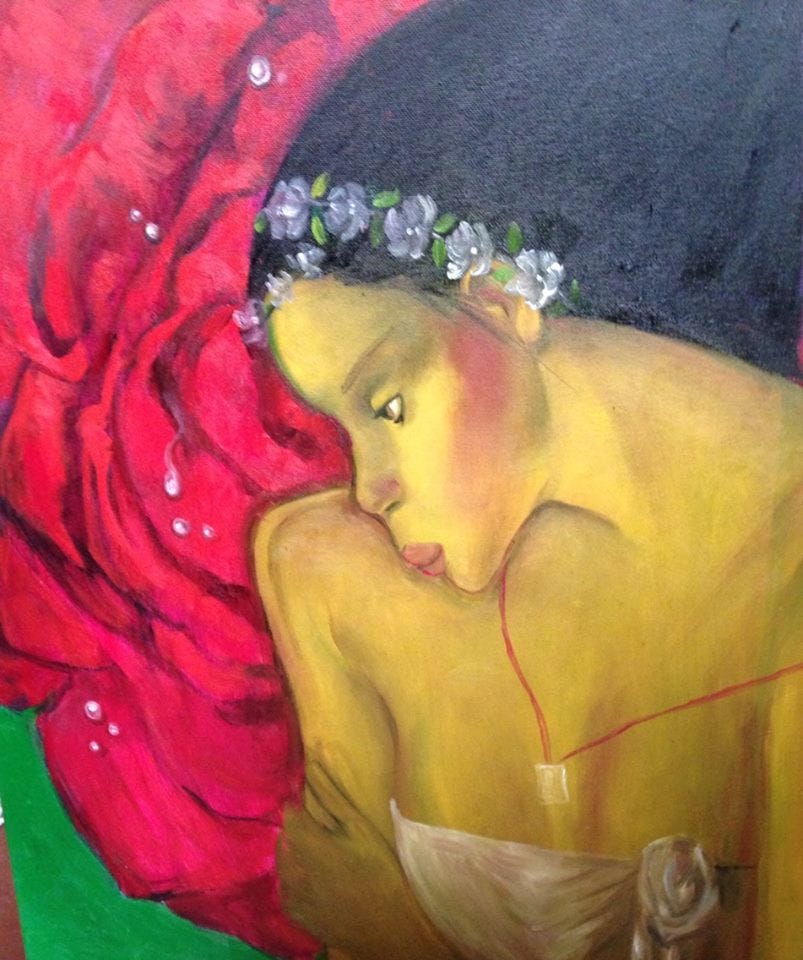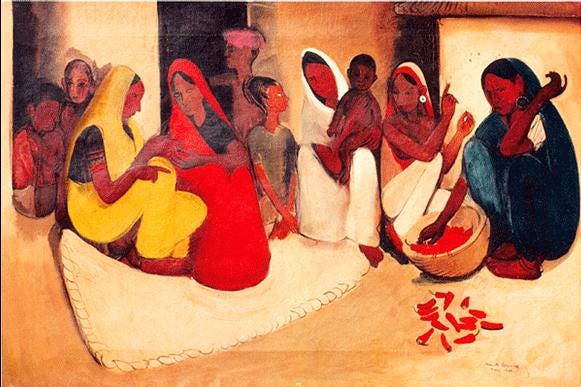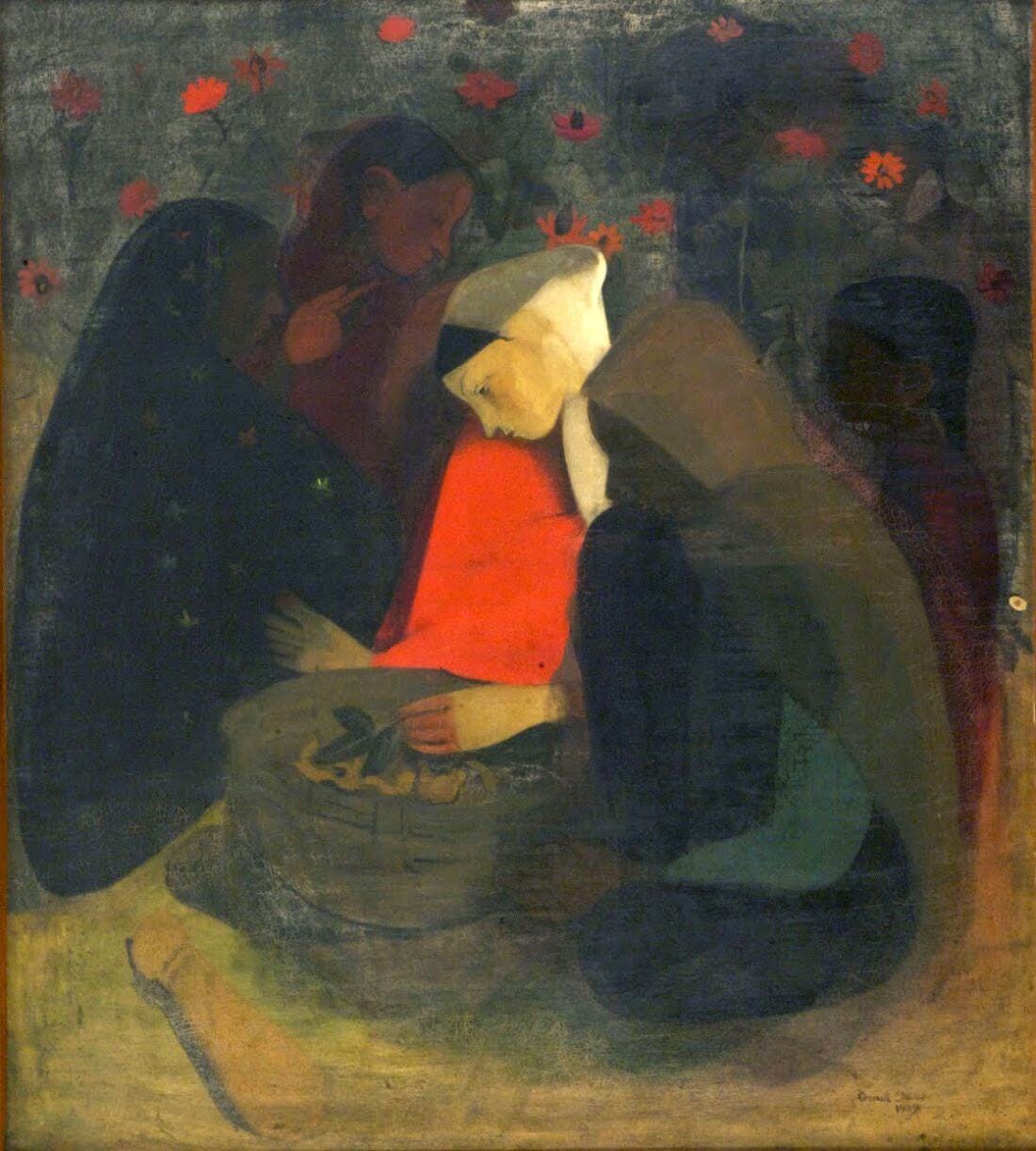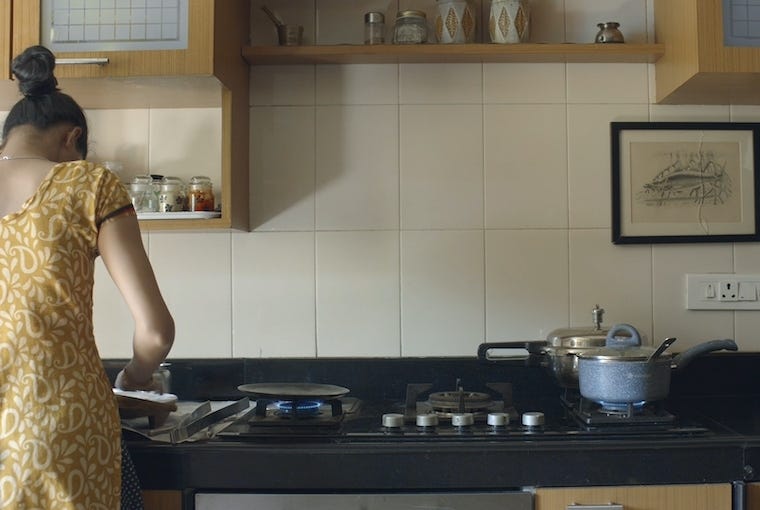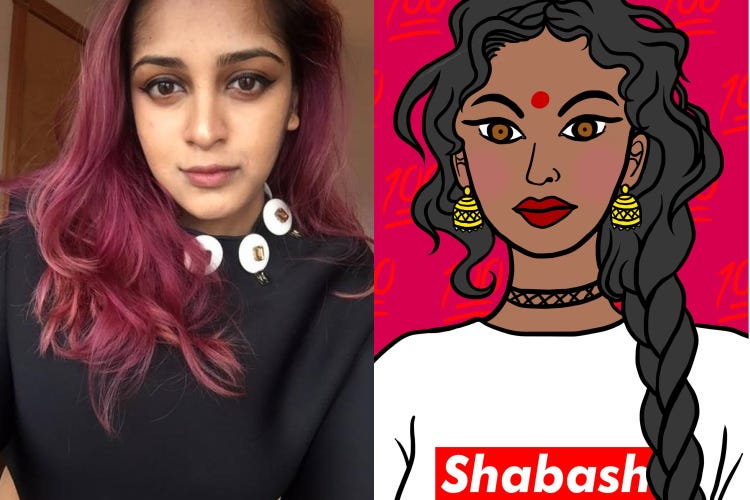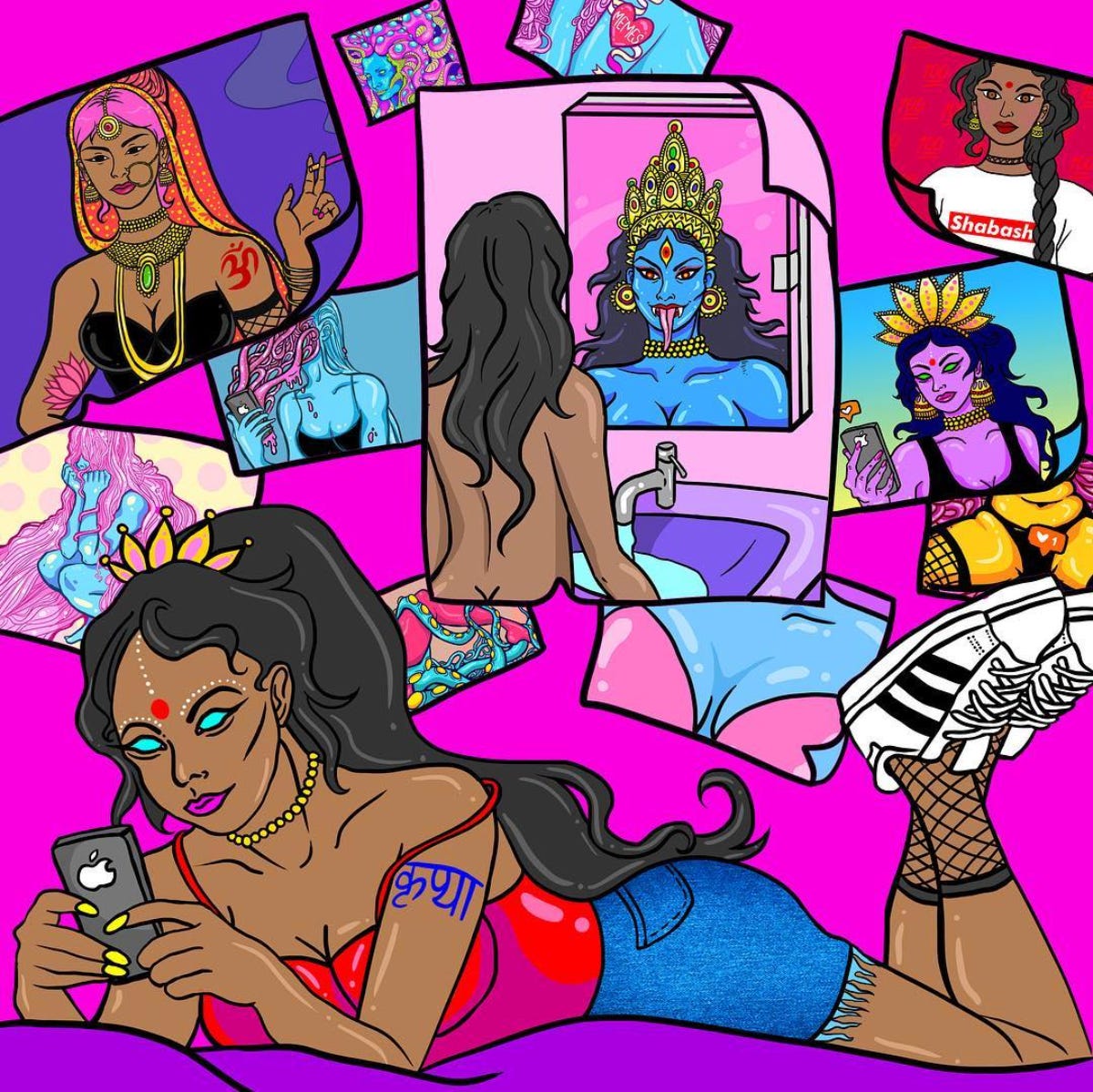
Discover more from Mosaic
Flowers are not enough
I can no longer pretend the flowers are enough. Flowers in my mother’s hijab frame the smile lines grown deeper; the long term health effects of appearing gentle in a hostile setting.
Today is International Women's Day, and news headlines and social media feeds around the world are sure to tell you so. However, what that entails will differ substantially. For women, it's an opportunity to highlight the still-present obstacles to attaining gender equality. For others, it's a day to celebrate gender roles as they've always been. For some, though, it is just another day; one that they are uninterested in.
Even in this day and age, when women's successful presence and leadership are obvious in all sectors of life, we hear stories from all over the world about the painful situations that women confront. While we come together to celebrate International Women's Day, we recognise that genuine gender equality is yet to be achieved anywhere in the world. Gender-based violence affects one out of every three women at some point in their lives. Women still do not have equal access to land, finance, or economic and educational possibilities.
Today, let’s call attention to the multiple dimensions in which women are struggling to find access and the disparities that lesbians, bi women, and trans (LBT+) persons endure. Respecting and treating everyone equally, whether they be women, men, or queer members, is critical for a co-existing future.
On Women's Day, take a bite out of a collection of empowering poetry by some of our favourite feminist and women writers, on issues such as feminism, gender inequality, and identity.
Another Woman by Imtiaz Dharker
This morning she brought green “methi” in the market, choosing the freshest bunch; picked up a white radish, imagined the crunch it would make between the teeth, the sweet sharp taste, then put it aside, thinking it an extravagance; counted her coins out carefully, tied them, a small bundle into her sari at the waist; come home, faced her mother-in-law’s dark looks, took the leaves and chopped them , her hands stained yellow from the juice; The usual words came and beat their wings against her: the money spent, curses heaped upon her parents, who had sent her out to darken the people’s doors. She crouched, as usual, on the floor beside the stove, When the man came home she did not look into his face nor raise her hand; but bent her back a little more. Nothing gave her the right to speak. She watched the flame hiss up and beat against the cheap old pot, a wing of brightness against its blackened cheek. This was the house she had been sent to, the man she had been bound to, the future she had been born into. So when the kerosene was thrown (just a moment of surprise, a brilliant spark) it was the only choice that she had ever known. Another torch, blazing in the dark. Another Women. We shield our faces from the heat.
Shame by Zhila Mosa’ed
Unfamiliar with the blue of the sky, Unfamiliar with the shining green of the earth, Unfamiliar with the history of man’s covering his body, I am standing Inside a circle of ice, Surrounded by sorrow and anxiety; And naked, ancient and alone, I carry on my shoulders the thousand-year-old burden of shame, of coveredness, of modesty. O mothers of sleep Whose bones Are the ancient hiding place of the dead instincts, Look how my bare, ancient roots, Slowly but with resolution, Penetrate the ice.
Exorcism by Zaina Alsous
I can no longer pretend the flowers are enough,
flowers in ink, flowers on plates, flowers in my shoe
laces, candied flowers, 1-800 FLOWERS, balloon,
birthday, funeral flowers, marshmallow flowers staining
the milk pink. Flowers in my mother’s hijab frame the smile
lines grown deeper; the long term health effects of appearing
gentle in a hostile setting. Have you read the instructions on tigers?
They may attack the unfamiliar. Remain calm, move slowly,
adapt as the tremor of leaves. To survive is to convince
the predator you are not really there.
I can no longer pretend slowly alive, kneeling in the soil
is enough. A nation of neon plastic straws, machines
on the surface of Mars, reminds its citizens to be patient.
Slowly, when the bill passes, slowly through diversity
training, slowly through handshake and t-shirt and apology
and apology and apology and apology and apology. I take a knife
to the dam, bathing in the leaks. There are teeth
in my laughter. Imagine a life of tectonic distortion: gaping, wet,
magma, colliding with, really there.
I scream my name in the pool, it is almost enough to hear the terror
I can be. Remember when discovering fire,
the heat of progress pairs a leather palm with new
ways to eat and be eaten.
If They Should Come for Us By Fatimah Asghar
these are my people & I find them on the street & shadow through any wild all wild my people my people a dance of strangers in my blood the old woman’s sari dissolving to wind bindi a new moon on her forehead I claim her my kin & sew the star of her to my breast the toddler dangling from stroller hair a fountain of dandelion seed at the bakery I claim them too the sikh uncle at the airport who apologizes for the pat down the muslim man who abandons his car at the traffic light drops to his knees at the call of the azan & the muslim man who sips good whiskey at the start of maghrib the lone khala at the park pairing her kurta with crocs my people my people I can’t be lost when I see you my compass is brown & gold & blood my compass a muslim teenager snapback & high-tops gracing the subway platform mashallah I claim them all my country is made in my people’s image if they come for you they come for me too in the dead of winter a flock of aunties step out on the sand their dupattas turn to ocean a colony of uncles grind their palms & a thousand jasmines bell the air my people I follow you like constellations we hear the glass smashing the street & the nights opening their dark our names this country’s wood for the fire my people my people the long years we’ve survived the long years yet to come I see you map my sky the light your lantern long ahead & I follow I follow
बच्चे, तुम अपने घर जाओ / गगन गिल
बच्चे, तुम अपने घर जाओ घर कहीं नहीं है? तो वापस कोख़ में जाओ मां की कोख नहीं है? पिता के वीर्य में जाओ पिता कहीं नहीं है? तो मां के गर्भ में जाओ गर्भ का अण्डा बंजर? तो मुन्ना झर जाओ तुम उसकी माहवारी में जाती है जैसे उसकी इच्छा संडास के नीचे वैसे तुम भी जाओ लड़की को मुक्त करो अब बच्चे, तुम अपने घर जाओ।
अपराजिता / कात्यायनी
(सृष्टिकर्ता ने नारी को रचते समय बिस्तर, घर, ज़ेवर, अपवित्र इच्छाएँ, ईर्ष्या, बेईमानी और दुर्व्यवहार दिया -'मनु') उन्होंने यही सिर्फ़ यही दिया हमें अपनी वहशी वासनाओं की तृप्ति के लिए दिया एक बिस्तर जीवन घिसने के लिए, राख होते रहने के लिए चौका-बरतन करने के लिए बस एक घर समय-समय पर नुमाइश के लिए गहने पहनाए और हमारी आत्मा को पराजित करने के लिए लाद दिया उस पर तमाम अपवित्र इच्छाओं और दुष्कर्मों का भार। पर नहीं कर सके पराजित वे हमारी अजेय आत्मा को उनके उत्तराधिकारी और फिर उनके उत्तराधिकारियों के उत्तराधिकारी भी नहीं पराजित कर सके जिस तरह मानवता की अमर-अजय आत्मा को उसी तरह नहीं पराजित कर सके वे हमारी अजेय आत्मा को आज भी वह संघर्षरत है नित-निरंतर उनके साथ जिनके पास खोने को सिर्फ़ ज़ंजीरें ही हैं बिल्कुल हमारी ही तरह !
स्त्री और घर / गीताश्री
1 एक स्त्री के कहाँ-कहाँ होते हैं घर एक घर वह जहाँ होता है सिर्फ़ धड़ एक घर वह जहाँ रोपती है मन एक घर वहाँ जहाँ बसती हैं उसकी असंख्य कामनाएँ, या वो घर जहाँ जबरन युद्धबन्दियो की तरह ठूँस दी जाती है, जीवन के बाक़ी दिन काटने के लिए. या वह घर जहाँ अनवरत टकराती रहती है दीवारो से लहूलुहान सपनो के साथ एक घर वह जहाँ के सपने कभी नहीं देखे अक्सर वही लटक जाता है उसके गले में, स्त्री के होते हैं कुछ अदृश्य घर जिसे ढोते हैं कुछ अदृश्य चेहरे. कभी वह अदृश्य खूँटी से उतारती है चुपचाप पहन लेती है सुरक्षा-कवच की तरह वह अदृश्य घर से निकल ही नहीं पाती कभी पँजेनुमा घर में कसमसाती हुई देखती है एक और घर का सपना जिसमें होना चाहिए आकाश की तरह खुला मैदानो की तरह हरा पहाड़ की तरह विशाल झरने की तरह जीवन्त फूलों की तरह रंगीन वह जब चाहे इनमें विचर सके अपनी मर्ज़ी से एक घर जो उल्टा धरा है उसके सिर पर बटोरना चाहती है ताक़त कि दोनों हाथों से उस उल्टे धरे घर को ढकेल सके परे इस घर ने न उसे घर में रहने दिया ना बाहर वह घर बाहर की यात्रा में, एक यात्री की तरह ही देखती है, ख़ुद को, हमेशा यात्रा पर जाने को तैयार दिखती है एक ख़ानाबदोश, कई-कई शहरो में कई घर उसे बुलाते हैं कहीं भी रख नहीं पाती अपना ट्रैवलर सूटकेस, निरन्तर पुकारते हैं कई कई घर वह बँटी हुई घरो के खाँचो में किसे माने किसे अपनाए और किसे कहे अपना घर स्त्री का नहीं होता अपना घर जैसे नहीं होती उसकी कोई जाति, धर्म घर उसके लिए उतना ही ज़रूरी जितना उसका होना, अपने लिए इसीलिए उसे अब भी माँ के मुहावरे में यक़ीन है कि जहाँ धड़ तहाँ घर. 2. घर क्या उसके लिए वह अभेद्य दुर्ग हो सका जहाँ सुरक्षित रह सकी उसकी इच्छाएँ घर का साम्राज्य कभी उसके हिसाब से चल सका जिसकी साम्राज्ञी वह बना दी गई फिर उसी साम्राज्य में एक कोने की तलाश में क्यों भटकती रही उसकी आत्मा 3. घर ख़ानाबदोश स्त्री का सपना नहीं परम्परा है जिसे वह कबीलाई युग से अब तक रोप रही है दूसरी स्त्री की आँखों में फिर शुरू हो जाती है घर के लिए उसकी सारी कोशिशें एक घर तक पहुँचने के लिए पार करती है कितने कठिन समुद्र और पहाड़ नन्हीं आँखों में लौ की तरह टिमटिमाता रहता है एक घर 4. स्त्री को पसन्द नहीं अस्त-व्यस्त घर उनमें वह ख़ुद को तलाशती रह जाती है दिन भर अपनी जगह की तलाश में बीत जाता है उसका सारा समय
स्त्री / जया जादवानी
एक उसने कहा तुम मत जाओ तुम्हारे बिना अधूरा हूं मैं सारी की सारी गठरी धर मेरे सर पर वह चल रहा आगे-आगे मैं गठरी समेत उसके पीछे! दो जैसे हाशिये पर लिख देते हैं बहुत फालतू शब्द और उन्हें कभी नहीं पढ़ते ऐसे ही वह लिखी गई और पढ़ी नहीं गई कभी जबकि उसी से शुरू हुई थी पूरी एक किताब! तीन वह पलटती है रोटी तवे पर बदल जाती है पूरी की पूरी दुनिया खड़ी रहती है वहीं की वहीं स्त्री तमाम रोटियां सिंक जाने के बाद भी! चार वे हर बार छोड़ आती हैं अपना चेहरा उनके बिस्तर पर सारा दिन जिसे बिताती हैं ढूंढनने में रात खो आती हैं! पांच पढ़ते हैं खुद खुद नतीजे निकालते हैं मेरी दीवारों पर क्या कुछ लिख गए हैं लोग!
“Most of the people that service our homes are marked in our memories only by their labour – the driver, the maid, the cook – their identities outside of their labour are, for the most part, invisible to us” - Alisha Mehta
In a country so starkly divided by class and luxury, Alisha Mehta, a Mumbai-born graduate student of filmmaking at the California Institute of the Arts, understands the power of visual media. Lata, her thesis film, follows a young domestic worker as she navigates the upper-class family in which she works.
Maid, Off honour!!
Maintaining the status quo of the Indian elite necessitates invisibility; we live in a country of immovable social hierarchies in which everyone is complicit. Throughout the film, the frame stays indoors. The static camera cuts close, at Lata’s eye level, not looking down at her — when she’s sweeping/washing floors, waiting outside a neighbour’s door, eating “her” food in steel utensils, looking in and out of doors/windows. The opening and shutting of doors demarcate the worlds — she has access into or has to wait outside of. The gaze is also directed inwards at the upper-class/upper-middle class whose lives can’t run without the helps.

References: Alisha Tejpal’s interview with Homegrown
Gender stereotyping is a significant impediment to true gender equality and feeds into gender discrimination. Gender stereotypes are preconceived notions in which men and women are arbitrarily ascribed qualities and duties based on their gender.
We recently came across Sam Madhu, a digital artist located in Mumbai, whose work, which is a blend of traditional Indian aesthetics from the past and future aspects inspired by cyberpunk culture, has been seen confronting the same prejudices we described above.
Sam Madhu’s refreshing depictions of brown women and deep-rooted stereotypes
Sam’s work is inspired by a fusion of elements from eastern and western ideologies. From dark dystopian cities remixed with temples, gods, and other ancient symbols, her work is jaw-dropping and inspiring.
Sam’s art transcends gender, mythology, and sexuality all in one, with Fuschia pink pop-art that resembles goddesses from Hindu mythology blended with a young Indian vibe as well as an air of eccentricity and wildness. Sam draws inspiration from art cinema, animation, anime, manga, and science fiction. Bold line work, rich colours, and controversial imagery are all part of her aesthetic.
See more of her breathtaking artworks at her Instagram @sam_madhu
Having presented a broad group of women's voices, we conclude by emphasising that gender equality begins at home, and families are on the front lines of change. For the next generation, the examples set at home by parents and extended family would go a long way in shaping the way they think about gender and equality.
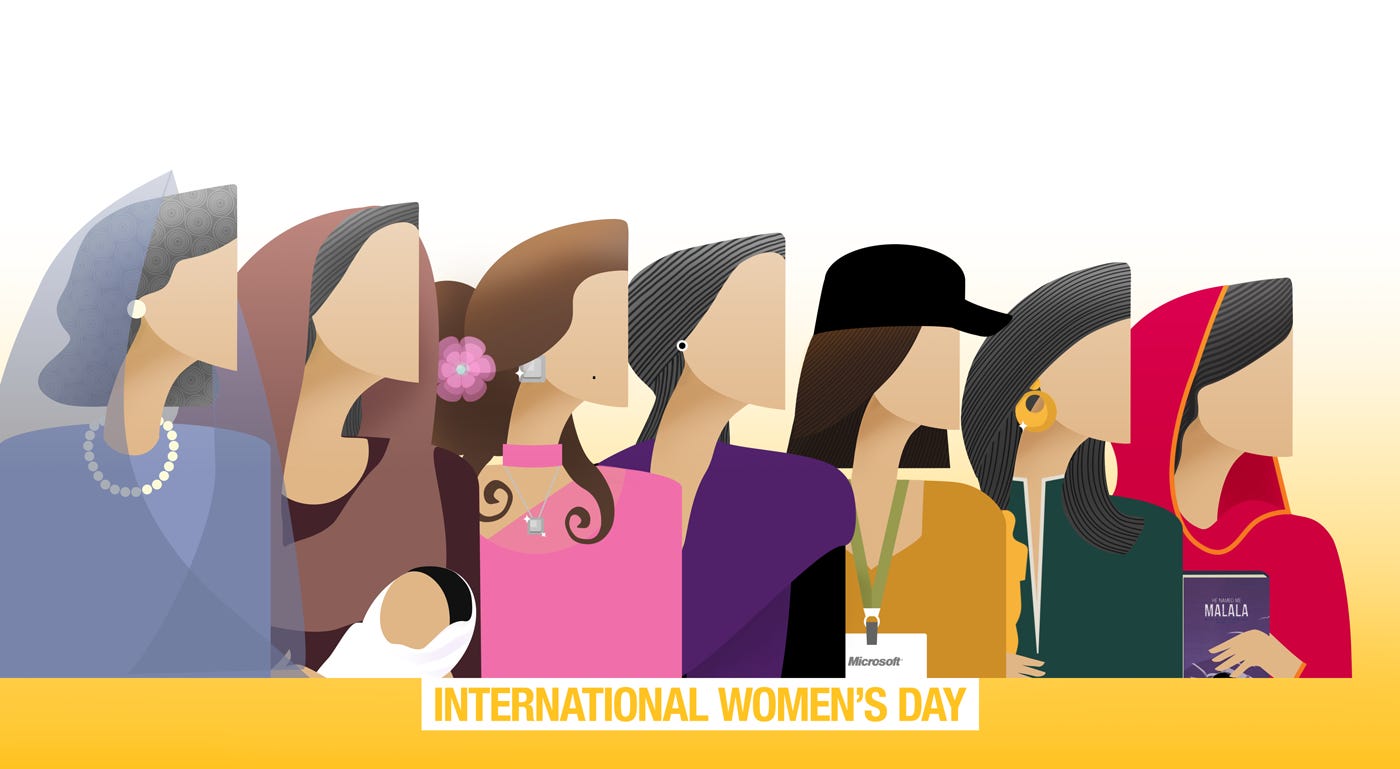
A very happy international women’s day to each one of you.
Curation: Divya Agrawal, Shivam Tomar, Ujjwal Shukla
Subscribe to Mosaic
Poetry, Culture, Cinema, and the Spaces In-Between / Weekly

